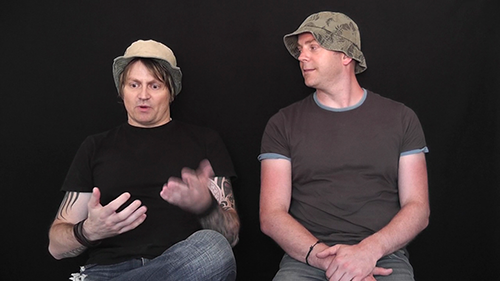Guitar Techniques Part 1
Hi everyone.
This week, we’ve compiled a list of Frethub’s “Top 40 Tips” that may help you in an array of musical situations, regardless of your level of playing. There are tips to aid practice, useful hints on live performance and even some recommendations of affordable gear to use that will assist you on your musical journey to guitardom.
“Guitardom?” Did I type that or just think it?
Anyway, here’s Part 1. We’ll reveal the next 20 tips in next week’s blog.
We hope you find these tips useful. Have a great week and thanks, once again, thanks for continuing to learn guitar with Frethub.
All the best,
Bobby and Nick
FretHub’s Top 40 Tips (part 1)
1: Use a metronome when practicing fast scales, licks and runs. Start slowly and build up speed in gradual increments. This is a very rewarding way to practice these guitar techniques and it will also improve your timing.
2: Beginners: Practicing for as little as 20 minutes a day, every day, will provide quicker results than cramming a whole week of practice into 1 or 2 days
3: Beginners: Do not play through pain! When starting out, it’s perfectly natural to experience some discomfort, especially in your fingertips. If this becomes too unbearable, simply put the guitar down for one day. Your fingertips will toughen over time.
4: For best results, practice technique using a clean sound. High levels of gain can mask inaccuracies. You can always crank up the distortion later, but remember: Accuracy over speed is the key!
5: Often, a little bit of overdrive can create a bigger, fatter sound than masses of distortion. Listen to early AC/DC and Led Zeppelin for example. You’d be surprised how little gain there is on the guitar sounds.
6: Whilst tablature can be a convenient shortcut to working out your favourite song or solo, nothing beats developing a good ear. Training your ear is one of the most rewarding gifts a musician can have.
7: Working out your own solos is a great compositional tool and over time, it can also help develop your improvisational skills, since you’re gradually building up a repertoire of your own licks that you can pull out of the bag when jamming.
8: Listening to your favourite players is a valuable addition to practicing. Take time to immerse yourself in the music you love. You’ll be surprised how many ideas you can absorb without realising it.
9: While a good guitar is better than a bad one, the real source of good tone is in your fingers and hands. For instance, how many well-known players are distinguishable by their vibrato alone?
10: While it may not be the most exciting thing to practice, learning the CAGED System and mapping out the neck is vital, not only for soloing and quickly finding chords, but it will also aid your composition.
11: When in difficulty, simply slow down. This is practically a fail-safe solution for any problems arising during practice. You can work through almost any lick or phrase if you slow down enough, helping you develop speed gradually.
12: Be your own biggest critic: Record yourself during practice and listen to the playback as objectively as possible. You’ll be surprised at just how much you can notice in your own playing, simply by listening.
13: Musicians have an old saying, “If you can sing it, you can play it”. Learn to sing your riffs, melodies and solos. Singing is a very powerful tool for developing the musical ear.
14: Music should not be a competition. There’s no such thing as “The best guitarist in the World”. It’s entirely subjective. Just try to be the best YOU that you can be.
15: When it comes to string and pick gauges, it’s a matter of personal preference. What might work for one person may not work for somebody else. Experiment and you’ll soon find the combination that’s perfect for you.
16: “The Amazing Slow Downer” by Roni Music is a great piece of software that will help you work out your favourite songs. Not only does it allow you to slow down music files without losing quality, but it also enables you to loop small sections of music, which will improve your ear training.
17: Learning to sing harmonies and backing vocals in a band is an extremely valuable skill to have. If you’re not used to singing, it may seem strange at first, but you’ll soon improve with practice.
18: When performing in front of fellow musicians, family and peers, it’s natural to become nervous and worry about making mistakes. However, nobody has the power to make you a worse or indeed a better player than you already are. Try to relax and the music will flow freely.
19: The Polytune app from TC Electronic is an effective and affordable way to keep in tune on the go. It has all the features of the famous Polytune pedal, but at a fraction of the price.
20: Listen to the players who inspire you and try to work out what you admire about the way they play (feel, tone, technique, sense of melody etc). Maybe you can incorporate some of those qualities into your own playing.

Nick looks on in amusement as Bobby realises, once again, that he left his guitar at home.
